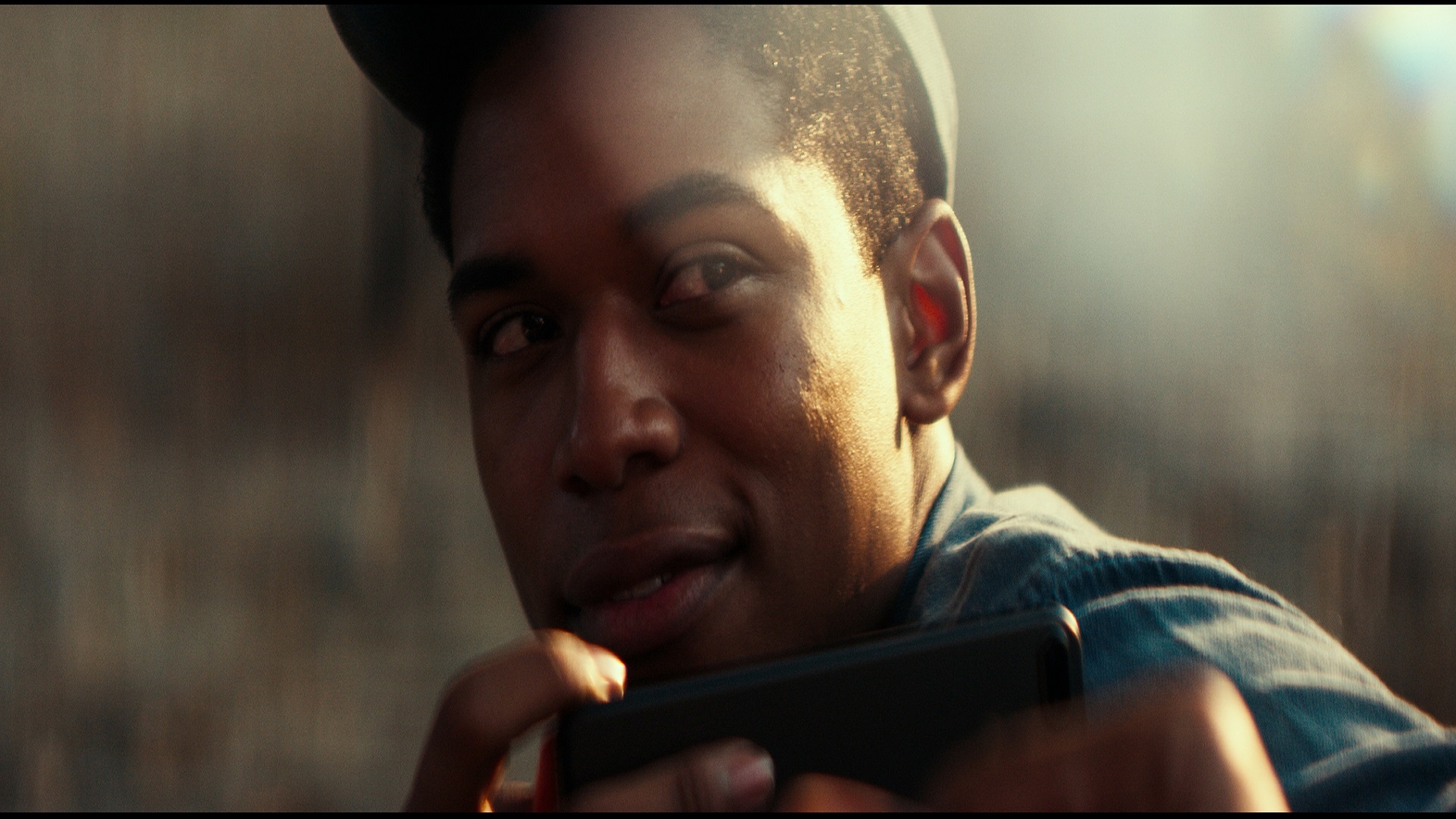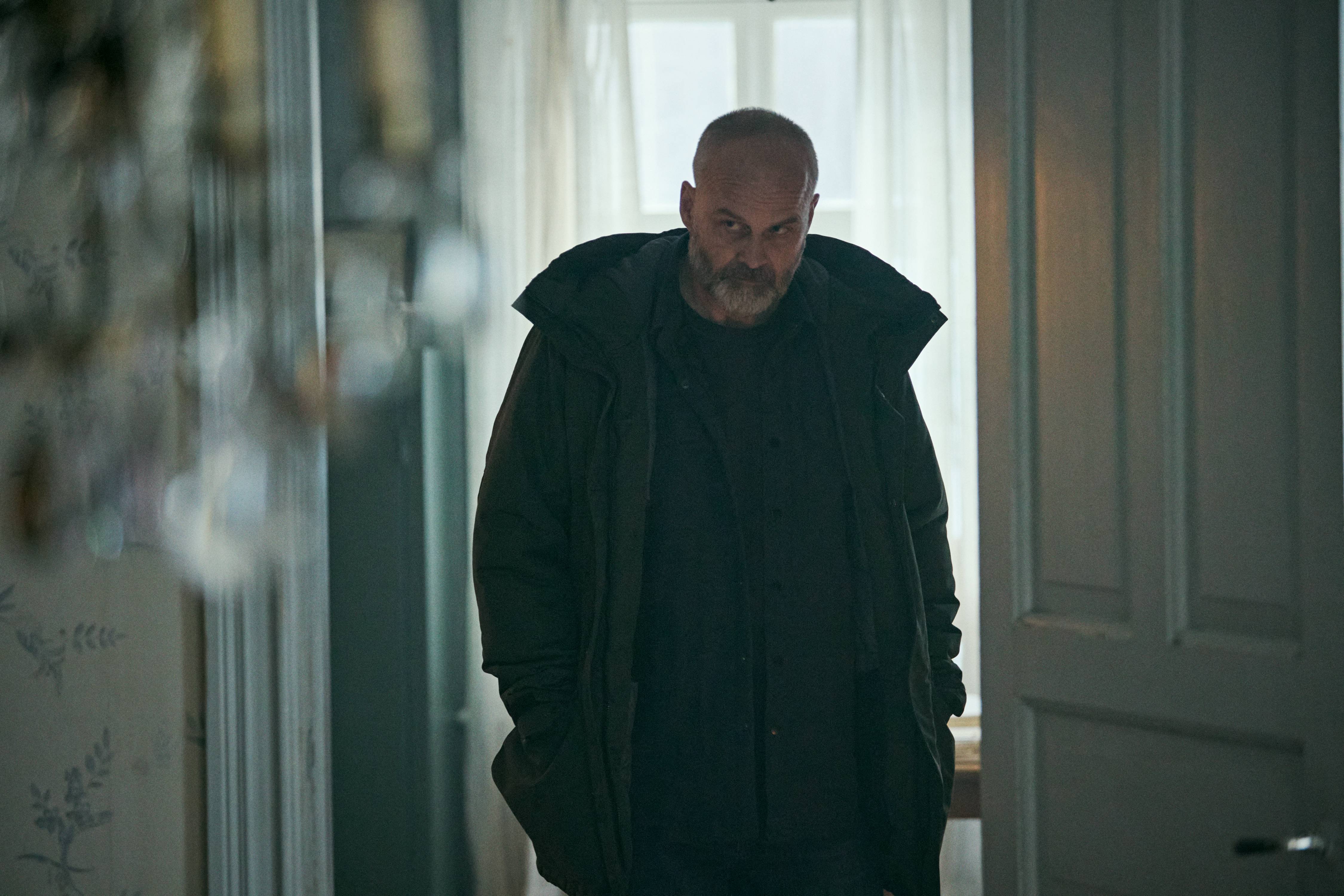What to Watch Verdict
Kelvin Harrison’s Jr empathetic performance alone makes Mandler's feature film debut a worthy watch.
Pros
- +
Kelvin Harrison Jr. is always a must watch
- +
Emotionally Engaging Score
- +
Contemporary and Accessible
Cons
- -
Stark courtroom elements missing a few key pieces
- -
Missed narrative opportunities and slightly disconnected pacing
- -
Underutilized supporting cast leads to improperly set stakes
Monster's a uniquely harrowing coming-of-age story; one where a Black teen's forcibly confronted with the harsh reality that a jury’s (and society) predisposed to see him as a monster and if his lawyer can't make them see him as a human being he'll forfeit his future and loose his freedom. It is a scenario that, sadly, remains true — perhaps more so — in 2021.
Based on Walter Dean Meyer’s 1999 trailblazing novel of the same name, Monster, tells the story of Steve Harmon (Kelvin Harrison Jr.), a middle-class seventeen-year-old Harlemite, accused of acting as the lookout for a bodega robbery that ended in the death of the store owner. It's a quiet drama that centers the uphill battle against being prejudged based on skin color, the assumptions made about you based on the company you keep (however loosely), and the judgments society's seemingly always ready to make about Black teens.
Harmon attends a prestigious high school, has a close knit group of age-appropriate friends, and lives with his supportive parents (Jeffery Wright and Jennifer Hudson). In his day-to-day he's a clean-cut, mellow kid with zero involvement in any criminal lifestyle. Harmon, who wants to be a filmmaker, spends his free time roaming about his neighborhood taking pictures and video of the people in his community. His only connection to "street life" comes by way of a casual friendship with a charismatic - if rough edged - teen from around the way whose stories about how the hood really works draws the obviously more sheltered Harmon in. In terms of the demands of societal assimilation, Steve Harmon lives a life no different than a well-off white teen living in the city. The prosecution can only make Harmon look “the type” by keeping him incarcerated while awaiting trial.
Director Anthony Mandler retains Meyer’s mix of third-person screenplay and first-person diary-style narration in Monster to create this stark slice-of-life narrative wrapped in his signature blend of beautiful or bleak, yet glossy and commercial ready visuals. Just as the book’s protagonist's deep introspection and questioning takes precedent over upheaval swirling around him, so too does the film draw its narrative from those quieter moments of angst and insecurity so easily lost in the sound and fury of most on-screen portrayals of a criminal trial.
Adapted for screen by Colen C. Wiley, Janece Shaffer and Radha Blank, Monster's script relies on a collective understanding that the U. S. criminal justice system makes little room for checking biases in order to preserve a defendant's presumption of innocence to present it's tale of a Black teen caught in the crossfire co-conspirators cutting deals and a prosecutor more focused on making an example than ensuring any punishment fits the crime committed...or if the accused committed any crime at all. It's a pointed condemnation of a system built on the everyday microaggressions that permit many to brush aside protestations of racisms and unfair treatment.
There’s a bit of narration by Harrison Jr., that raises the question, “What’s good company? Who keeps it?” as Harmon recalls the events leading up to the incident that leads to his arrest, the audience begins to wonder what's his real culpability in all this. It’s a slick bit of verbal sleight-of-hand when coupled with the film's innuendo-laden monologues by lawyers and sharp quips by the prosecutor in the courtroom. Hearing Harmon's thoughts, as though actually reading his diary entries, provides a poignant roadmap to navigating his internal conflict when faced with how the prosecution portrays him to the jury and his own recollections.
This isn’t the unraveling of a police investigation that railroaded teens into prison like When They See Us nor is it the heartrending struggle to free a man from death row like Just Mercy. Monster is more a cautionary tale of how naivete and questionable company can lead you to places you never wanted to go. And leave you dangerously at the mercy of a criminal system designed to paint you as less than human and underserving of due consideration.
Rather than focus on the flash and chaos, Monster relies on the dry proceduralism that's far closer to the reality of a courtroom trial, to juxtapose snippets from Harmon’s life (before and during his trial) and frame the questions, and judgment, he now wrestles with.
But, Monster suffers from a weakness often found in slice-of-life narratives: too much storytelling by inference. Mandler definitely knows how to compose a shot but he assumes the audience comes to the narrative on the same page and able to pick up what it all means.
By the midway point, it’s clearly established that Harmon lives a well-loved, drama free life. But the on-screen presentation is a touch too slick and removed. The result is a seriously underutilized opportunity to pull this narrative thread into sharper focus and underscore that despite being of good character being Black and accused is deemed more than enough reason for Steve Harmon to find himself dragged from his home in handcuffs by cops.
While turning down the volume on courtroom antics creates a more realistic - if occasionally dry - depiction of a criminal trial and showcases how surreal the unfolding experience is for Harmon, it presupposes an acceptance that how prosecutions are permitted to present the facts and tie them to multiple defendants here is wrong. There needed to be more plot signposts beyond info-dumping via stoic recitations about how criminal trials work or thin allegories contained in conversations about what drives a creator to create and share their story in film class flashbacks.
These moments are what should shape the tension of the court drama. Yet the early tone set by Harmon’s encounters with his lawyer (Jennifer Ehle) are too sparse and emotionally muted to properly set the stage. The selection of which stages of the criminal proceedings leading up to Harmon finding himself on trial for felony murder are also too underdeveloped to guarantee viewers understand exactly how messed up the legal circumstances he finds himself facing truly are. The lawyer in me screamed in frustration as the story essentially glossed over the fact he’s on trail at the same time as the alleged shooter instead of being tried separately. This sparseness also throws the pacing of the film's more poetic and lyrical flashbacks to his relationship with his fellow defendant, family, and school friends too far out of sync with his present day circumstances to truly drive home the psychological costs of all this on a seventeen-year-old.
Plus, it isn’t often that a Black nuclear family occupies a space usually reserved for white teens facing this kind of criminal trial on screen. Mandler's failure to build on the simple but compelling encounters with his family members - particularly with his father - undercuts the dark hypocrisy of how the prosecution diligently works to paint him guilty by relying on stereotypes and assumptions made about the "temptations and trials" a Black teen faces.
Harrison Jr.'s portrayal of Steve Harmon as just a Harlem teen living an untroubled life and roaming the streets after school taking in life from behind the lens of his camera is understated yet evocative. In a story that relies heavily on engaging your sympathies for the protagonist even as you're ultimately left questioning his culpability, Harrison Jr. is note perfect.
The rest of the cast is a tight gifted ensemble who keep the story focused on Harmon’s experience by giving finely-drawn emotional performances. The poetry and pain in the film’s quiet spaces makes it’s more kinetic moments hit that much harder. So much so, you may come away slightly dissatisfied the storyline doesn’t offer a more rounded story to make room for more such moments given the caliber of talent and sustained chemistry between its players.
And a more refined character development would've only increased audience investment in seeing Harmon come through as mentally unscathed as possible. Understanding the legal unfairness he faced as well as wondering whether he did or didn’t do what he’s accused of would've also given the emotional highs and lows along the way just the kick they needed to turn this solid bit of storytelling that leaves you wanting more heft into something hauntingly masterful.
Flaws and all, Monster is an extremely engaging and necessary look at the presumptions made about and aspersions cast on Black teens. It’s a far more realistic and likely scenario than those often selected to anchor courtroom dramas about the prison pipeline and criminal justice system. There are valuable questions posed and poignant reminders that, for some, fair judgment is never guaranteed. It's a weary realization that lies at the heart of far too many Black teens coming-of-age journeys to continue to be discounted.
Pacing missteps and missed opportunities notwithstanding, Kelvin Harrison’s Jr empathetic performance alone makes Mandler's feature film debut a worthy watch.
Monster premieres on Netflix, May 7, 2021.
Ro is a Rotten Tomatoes approved film/tv critic, writer and host on several of the MTR Network's podcasts. She's a member of the San Diego Film Critics Society and the Online Association of Female Film Critics. She's a former culture columnist for San Diego CityBeat (may it rest in peace) with a serious addiction to genre fiction, horror and documentaries. You can find her sharing movie and book recs and random thoughts, on her podcast I Talk Sh!t and Read or in her newsletter, Shelf Envy.












